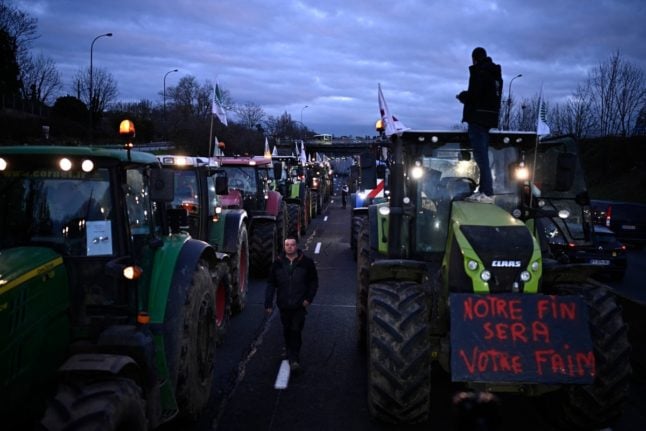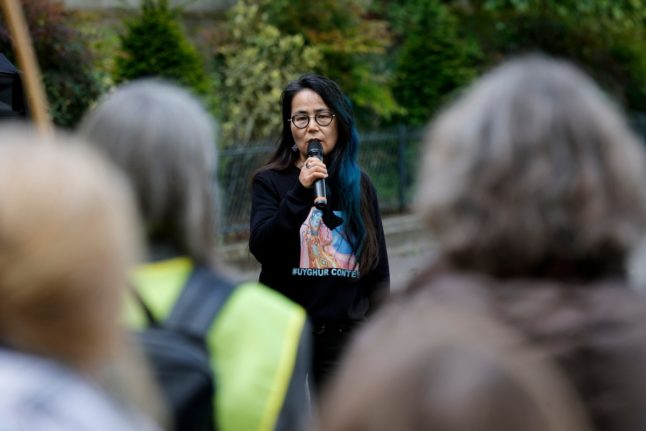Farmers’ unions, unimpressed by concessions offered by President Emmanuel Macron’s government, encouraged their members to fight on for improved pay, less red tape and protection from foreign competition.
“I’m so proud of you,” Serge Bousquet-Cassagne, head of the farmers’ association in the southwestern Lot-et-Garonne department, told protesters headed for the wholesale Rungis market south of Paris, a key food distribution platform for the capital.
“You are fighting this battle because if we don’t fight we die,” he said.
LATEST Where are French farmers blockading on Wednesday
The government has warned farmers to stay away from Rungis and large cities, with Interior Minister Gérald Darmanin – who has ordered police so far to tread lightly – saying police stood ready to defend strategic spots.
“They can’t attack police, they can’t enter Rungis, they can’t enter the Paris airports or the centre of Paris,” Darmanin told the France 2 broadcaster. “But let me tell you again that if they try, we will be there.”
Despite the warning, a convoy of tractors that started in the French southwest resumed its drive towards Rungis early Wednesday after spending the night on farms along the way, AFP reporters said.
Police units with armoured vehicles have been deployed along the A6 motorway leading to the food market in anticipation of their arrival.
The government has scrambled to offer concessions, with Prime Minister Gabriel Attal telling parliament Tuesday his government stood ready to resolve the crisis and praised the agriculture sector as “our force and our pride”.
In an apparent reference to contested EU rules, he said: “France must be granted an exception for its agriculture.”
On Wednesday, Finance Minister Bruno Le Maire promised that France would prevent a trade deal between the European Union and the South American Mercosur bloc – a key grievance for protesters – to be signed in its current state.
But farmers said the promises, including assurances of higher payouts under the EU’s Common Agricultural Policy (CAP), did not go far enough.
“Several of these measures will take three or four years to be implemented,” said Johanna Trau, a grain and cattle farmer in Ebersheim, eastern France. “I’ll believe it when I see it.”
Darmanin said there were 10,000 protesting farmers on French roads Wednesday, blocking 100 spots along major roads.
In addition to moving on Paris, convoys were also attempting to encircle Lyon, France’s third-biggest city.
In Toulouse in the southwest, protesting farmers tried to blockade the local wholesale food market, but were removed by police.
Farmer uproar has been widening across Europe, with Spanish farmers saying Tuesday that they would join protests by their French, German, Polish, Romanian, Belgian and Italian colleagues.



 Please whitelist us to continue reading.
Please whitelist us to continue reading.
Member comments